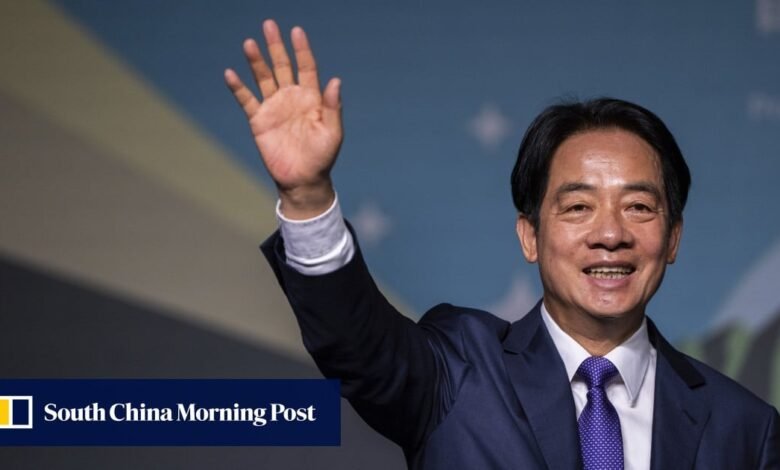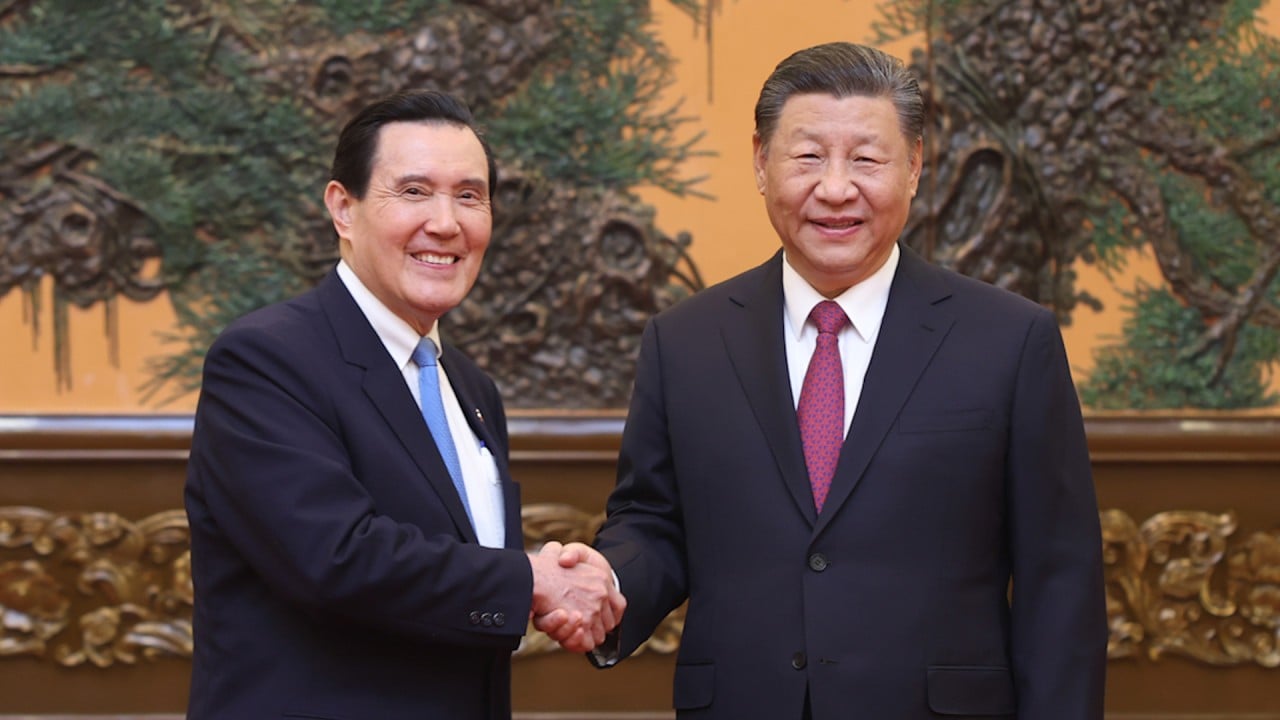Beijing increases pressure on Taiwan with warplanes, trade and travel policies as William Lai’s inauguration approaches

Although the flight was seen as an attempt by the PLA to unnerve the island, Beijing authorities expressed goodwill with plans to ease restrictions on group travel to Taiwan and resume imports of several Taiwanese food products.
Beijing is betting on Ma Ying-jeou’s trip to help win hearts and minds in Taiwan
Beijing is betting on Ma Ying-jeou’s trip to help win hearts and minds in Taiwan
Additionally, a senior mainland customs official informed visiting lawmakers that imports of Taiwanese pomelos and two types of seafood would resume. These imports were banned in August 2022 in retaliation for a visit to Taiwan by then-US House Speaker Nancy Pelosi.
Fujian will lead as Beijing eases restrictions on group travel to Taiwan
Fujian will lead as Beijing eases restrictions on group travel to Taiwan
However, critics in Taiwan have seen these mixed signals of appeasement and intimidation as a “boost and stick” approach to coerce the island into accepting reunification with mainland China.
Beijing sees Taiwan as its territory that must be reunified with the mainland, by force if necessary. Like most countries, the United States – the island’s biggest arms supplier – does not recognize self-ruled Taiwan as independent, but opposes any unilateral change to the status quo across the Strait by force.
Commenting on the situation, Wang Ting-yu, a lawmaker from Taiwan’s ruling Democratic Progressive Party (DPP), said: “The KMT group boasted about your visit, calling it a rewarding and ice-breaking trip. But while they were in China, [Beijing] sent warplanes to harass us just 37 nautical miles north of Taiwan.”
Cross-Strait relations have deteriorated over the past eight years since Tsai Ing-wen of the independence-leaning DPP was elected president of the island. Tsai has refused to accept the one-China principle, which Beijing considers the basis for communication between the two sides. In response, Beijing suspended official exchanges with Taiwan and intensified pressure on the island through military, diplomatic and economic measures.
Since the election of DPP’s Lai as president in January, mainland China has stepped up military intimidation against Taiwan.
According to the island’s Defense Ministry, PLA warplanes have flown more frequent missions in areas closer to northern Taiwan in recent months, crossing the median line that unofficially separates the two sides of the Taiwan Strait.
The ministry detected PLA warplanes flying closer to Pingtung and Kaohsiung in the south, with the closest about 40 nautical miles away, indicating that Taiwan would have less time to respond in the event of an air strike from Beijing.
Beijing has labeled Lai a “die-hard separatist” who would bring war to Taiwan.
Analysts suggested that the increasing intimidation was part of Beijing’s two-pronged strategy to pressure Lai before his inauguration on May 20.
Zivon Wang, an analyst at the Chinese Council for Advanced Political Studies think tank in Taipei, explained: “Beijing only wants to engage with those who accept the ‘1992 consensus’ and its one-China principle.”
The 1992 consensus refers to a tacit understanding reached that year by Beijing and the KMT that for both sides to continue talks, they must recognize that there is only one China – but each side may have its own interpretation of what that means. China represents.
“Along with economic incentives, sending warplanes closer to Taiwan to increase intimidation is part of a two-pronged strategy to force the new administration to compromise and accept the consensus if it wants talks,” Wang added, from the Taipei think tank.
He emphasized that Beijing’s objective regarding Taiwan was to end the island’s separate existence while at the same time incorporating it into the mainland under the “one country, two systems” model applied in Hong Kong.
“Beijing is unsure what Lai would do after taking office – whether he would follow Tsai’s cross-strait policy to maintain the status quo or whether he would push the red line of independence,” he said.
“The ‘boost and stick’ approach serves to warn the new administration to remain prudent in its policy towards the continent.”
He said Beijing is not expected to take more aggressive action against Taiwan between Lai’s inauguration on May 20 and the US presidential election on November 5, although it is likely to continue its pressure campaign against the island. .
He said Beijing could adopt a wait-and-see approach to assessing the outcome of the US presidential elections and the policies of the new administrations in Taipei and Washington.
Taiwan’s new cabinet will feature fresh faces, but security will be left to experienced hands
Taiwan’s new cabinet will feature fresh faces, but security will be left to experienced hands
KMT lawmaker Chen Yu-jen, who participated in the visit to the mainland, said it was “understandable that Beijing would adopt a strategy of ‘conciliation and threat’ in dealing with the island.”
“Mainland China’s objectives towards Taiwan have not changed and therefore its dual strategy remains unchanged,” she said.
“On the one hand, Beijing may extend more olive branches to the island, but on the other hand, it will not stop sending warplanes circling Taiwan and increasing maritime patrols.”
Since February, Beijing has stepped up maritime patrols around a group of islets, including Quemoy, also known as Kinmen, and Matsu – both controlled by Taiwan. This escalation occurred shortly after a boat accident that resulted in the deaths of two mainland fishermen during a chase by the Taiwan coast guard.
Taiwan’s intelligence chief, Tsai Ming-yen, also highlighted Beijing’s “stick and carrot approach” toward the island as aimed at influencing the new government’s cross-Strait policy.
“What needs special attention is that after May 20, from June to November, is when the Chinese communists hold their regular military exercises,” he said.
“We are closely monitoring whether Beijing would use this period as an excuse to carry out more aggressive military exercises to further pressure Taiwan.”





